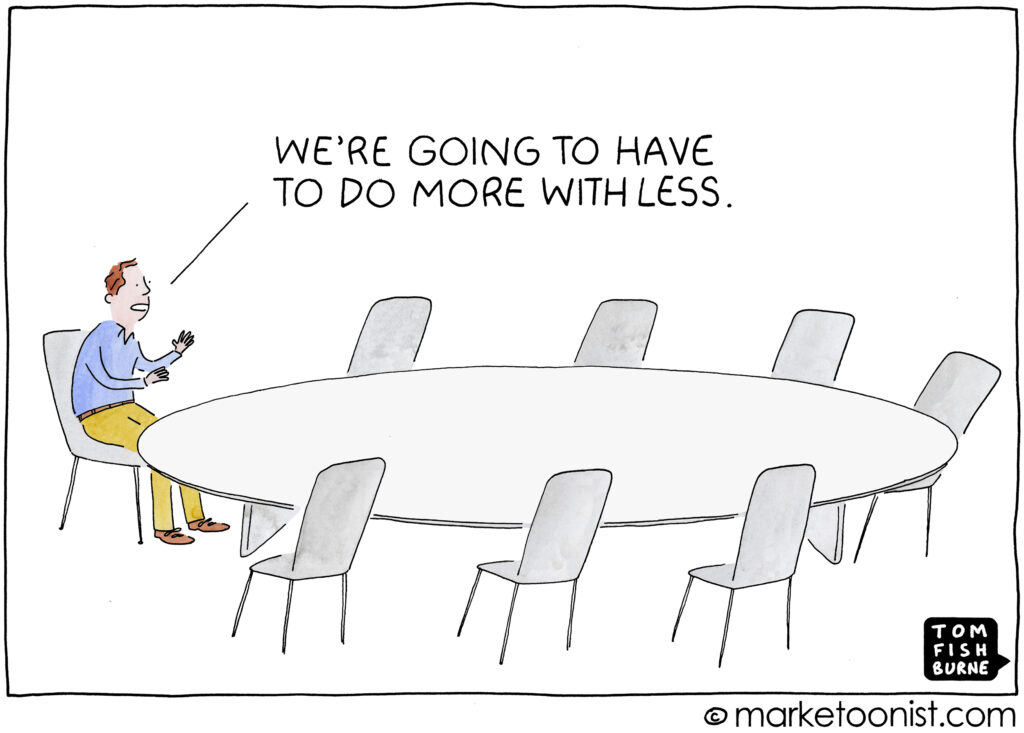Ever heard of the Efficient Market Hypothesis? It’s a doozy.
Efficient market theory suggests that the value of an asset is replicated in its price when the market is efficient.
Used mainly in the stock market, the Efficient Market Hypothesis rests on the assumption that all information relevant to stock prices is available and shared with all market participants so that no one has an advantage, and the “system can’t be beaten.”
Therefore, by design, outperforming an “efficient market” is highly unlikely.
Hmm.
May I suggest a new hypothesis…
…losing money makes an efficient market!
Now that makes perfect sense.
Maybe it’s better to find inefficient markets…ones in which an asset’s prices do not accurately reflect its true value.
The disparity in value and price will be obvious and apparent. You don’t have to think about it.
It’s there for all to see…
…in all its inefficient glory.
In my humblest opinion, most markets are inefficient. For proof, just look at the Dotcom bubble burst in the late 1990s / early 2000s and every market crash we’ve ever had in history.
Market exuberance is also highly inefficient.
The “availability of information” is not the issue here.
It’s the “knowledge about the information,” i.e., how to interpret the information and act accordingly.
But it’s also about “time.”
Time and efficiency are related. If you do something in 15 minutes that takes the average person one hour to do, it’s a more efficient use of time.
The real estate market is a prime example of an inefficient market.
Just last year, you had buyers bidding up prices, in some cases paying six figures over the asking price!
Buyers were in panic mode as housing inventory dropped to historic lows, which caused prices to increase ever faster.
That will surely make the comps more efficient downstream, right?
On average (nationally) the median home price of a single-family home has more than doubled in the last ten years.
That’s not a very efficient market.
The notion of “efficient markets” is a bit nonsensical in the “available information” context as it’s much more complicated and dynamic than that.
Missing from the equation are factors like scarcity, time, and perhaps the most important part – understanding and then acting on the information that is available.
I’m starting to believe that the more information we have, the less efficient markets become. (I.e., how much time do you have to interpret and act on the information?)
Maybe inefficiency is the new efficiency.
A proper imbalance if you will.
It all boils down to time – the greatest asset we have.
But time, like attention, is scarce.
There is too much going on in our lives to focus and understand the available “information.”
Today, information is the “ship that passes in the night.”
It’s not consumed. It’s not understood. And not acted upon. Highly inefficient!
It’s the baggage that endlessly circles the luggage carousel that nobody will pick up.
Information, unlike markets, has no constraints.
It’s freely available and replicated in value.
Inefficient in every way.
Greater Fool Theory
Have we all become “greater fools?”
With the market bubble now upon us, will we continue to buy overvalued assets hoping to sell them for a profit later to someone who will pay an even higher price?
After all, some fool downstream will be there to bail us out right?
If money is no object, maybe it pays to be the greatest fool.
For the greatest fools turn the most efficient markets highly inefficient in short order.
Maybe that’s what we need to get out of this economic mess we find ourselves in today – greater fools.
That is a surefire way to keep the markets inefficient.
It’s time we embrace inefficiency and go all in!
When you don’t make use of the vast amounts of free-flowing information that permeates efficient markets, you don’t waste time or energy trying to produce a desired effect.
You become incapable of participating in “systems that can’t be beaten.”
Thus, you’re perfectly incompetent.
Embrace thee.
You’ve finally found a way to “beat the system.”
With tongue in cheek, consume this information at your sole discretion.
And be sure to stay unruly in all your pursuits.
